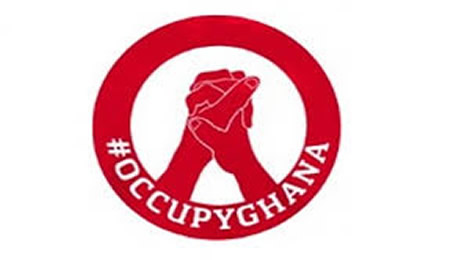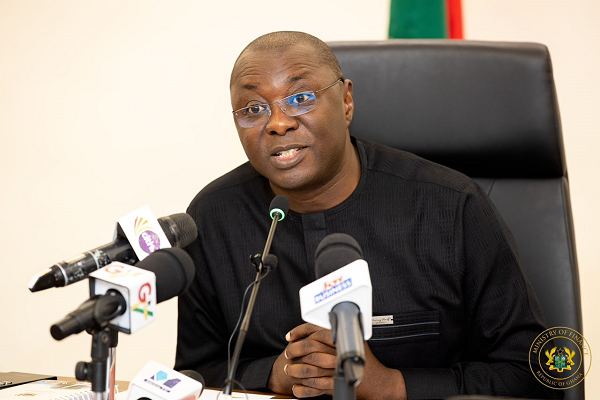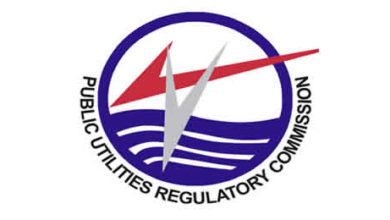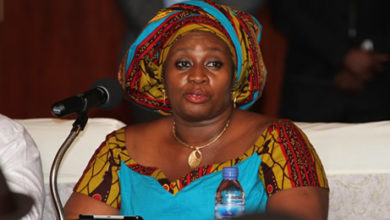Kan-Dapaah goofed by claiming that A-G’s independence and powers are unconstitutional – OccupyGhana

OccupyGhana, a pressure group, has expressed their utmost shock at the views that Albert Kan-Dapaah, the National Security Minister-nominee expressed on the independence and powers of the Auditor-General (A-G) on February 10, during his vetting.
According to the civil society group, the National Security Minister-nominee did not provide any legal or constitutional basis for his shocking views.
Responding to questions from the Appointments Committee of Parliament, Albert Kan-Dapaah claimed that the independence of the Auditor-General is “not personal” to the Auditor-General, but belongs to the Audit Service.
He also stated that the Auditor-General’s reports must be approved by Parliament before the Auditor-General can issue disallowances and surcharges.
In a statement copied to GhanaWeb, OccupyGhana stated inter alia: “We vehemently disagree with Mr Kan-Dapaah’s claims. They have no basis in the law or our Constitution and appear to feed into an attempt by some political actors, clearly uncomfortable with the constitutional position and role of the Auditor-General especially in the light of the magisterial decision of the Supreme Court in OccupyGhana v Attorney-General, are seeking to whittle down that independence and powers that the court upheld in that decision.”
They explained further: “First, Mr Kan-Dapaah should know that the alleged ‘Westminster system’ might be taught to and cherished by accountants, but has no legal application in Ghana. The Minister-[nominee] knows or should know that the Constitution has made no provision that applies the so-called ‘Westminster system’ to Ghana. On the contrary, our Constitution is explicit that the Auditor-General, in the performance of his functions under both the Constitution and the law, ‘shall not be subject to the direction or control of any other person or authority’. Parliament is one such authority. The Auditor-General is definitely independent of Parliament and any attempt to subject the Auditor-General to the control of Parliament or any other person or authority is not just wrong, but plainly unconstitutional.
“Second, Mr Kan-Dapaah is wrong in his claim that this independence is ‘not personal’ to the Auditor-General, but belongs to the Audit Service. The simplest reading of article 187(7) shows that the Constitution gives this independence to the office of the Auditor-General and not the Audit Service, which is created by article 188 and is given no such independence. While it is arguable that the Auditor-General’s independence should extend to the Audit Service, and we think that this was implied by the Supreme Court in Brown v Attorney-General, any claim that the Auditor-General qua Auditor-General has no such independence is plainly wrong and ought not be countenanced.”
OccupyGhana further said the Minister-nominee is wrong when he claims that the Auditor-General’s reports must be approved by Parliament before he can issue disallowances and surcharges.
They indicated that on Kan-Dapaah’s illustration about a father’s permission being required before the conduct of his erring son is impugned by an auditor, “the least said about it the better”.
“It is not a coincidence that the framers of the Constitution placed the Auditor-General’s independence and powers of disallowance and surcharge in the same paragraph of the Constitution as if the two are to move in tandem,” OccupyGhana noted, adding that there is nothing in the Constitution that supports the claim that Parliament must approve the Auditor-General’s reports before the Auditor-General can exercise his powers of disallowance and surcharge.
“Contrary to Mr Kan-Dapaah’s position, all the Constitution says is that the Auditor-General should ‘submit’ his report to parliament and then ‘draw attention to any irregularities’ or any other matter he deems fit. Submitting a report and drawing attention to irregularities does not mean that Parliament’s prior approval is required before the Auditor-General exercises his constitutional powers of disallowance and surcharge,” the group explained.
“Further, the exercise of these powers is not to abide [….] hearing by Parliament’s Public Accounts Committee. The Constitution does not say that. What it says is that Parliament is to debate the report and ‘where necessary, in the public interest, appoint a committee to deal with matters arising from the report’. The fact that Parliament has interpreted this to mean that there should be a Public Accounts Committee does not mean that the Auditor-General needs to wait for this Committee to conclude its work before the Auditor-General exercises his constitutional powers,” the group stressed.
The group observed that Kan-Dapaah’s position does not also find support in the Audit Service Act.
They also quoted Section 17(7) of the Act which reads, “The Auditor-General may with the prior approval of Parliament revoke any surcharge made under this section.”
“While this section is of dubious constitutional effect by saying that Parliament’s approval is required to revoke surcharges, it certainly does not support the claim that Parliament’s approval is required before disallowances and surcharges are issued in the first place,” OccupyGhana averred.
“We are extremely concerned because the danger with these views that Mr Kan Dapaah has expressed is that it feeds into a current narrative in the political class that seeks to clip the wings of the Auditor-General, particularly after the decision of the Supreme Court in OccupyGhana v Attorney-General. We wish to assure Mr Kan-Dapaah that we stand ready to resort to court again at any time that we believe that the independence of the Auditor-General is being compromised or powers interfered with,” they concluded.





